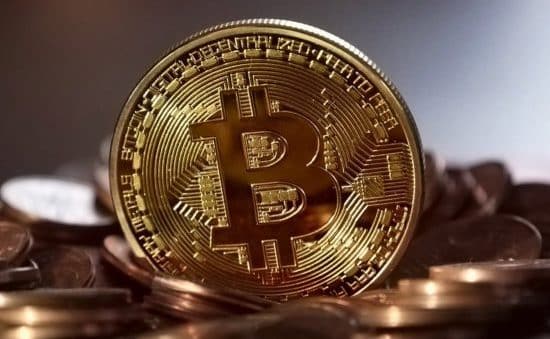Just this week, JP Morgan Chase CEO Jamie Dimon came out strongly against Bitcoin. Calling it a “fraud“, claiming that “it is worse than tulip mania”, and declaring that he will fire any employee who trades the cryptocurrency for being “stupid”. (While somewhat amusingly admitting that his daughter invests in Bitcoin.)
Also this week, several China-based Bitcoin exchanges including BTCC, ViaBTC, Yunbi, OKCoin and Huobi have been ordered to stop trading by the end of September. This news follows a decision by Chinese authorities earlier in the month to ban fundraising through Initial Coin Offerings (ICOs).
The price of Bitcoin dropped by around 32% during September, before rocketing 27% in a single day on Friday.
What’s going on here?
At least three things.
Firstly, Bitcoin can function without a trusted financial intermediary, which means it may take business away from established financial institutions like JP Morgan. Bitcoin is a cryptocurrency; that is, a digital currency which records transactions in the blockchain, a decentralised shared public ledger stored on computers connected to the Bitcoin network, and secured using cryptography. As a result, transactions can take place between any users on the network without needing to pass through a trusted financial intermediary. As it happens, JP Morgan Chase often plays the role of a financial intermediary, from which it earns substantial revenues [pdf]. This may help to explain why Jamie Dimon, the firm’s CEO, has been so critical of Bitcoin. It is a technology which could disrupt his bank’s business model, which makes it a potentially serious threat that needs to be squashed.
Secondly, Bitcoin allows anonymous transactions worldwide, which makes it difficult for governments to monitor and control. Jamie Dimon is skeptical that authorities will ever allow a currency to exist without state oversight, and this may explain China’s crackdown. China is likely concerned that people are using Bitcoin to shift money out of the country in violation of its capital controls. China is also likely worried, and legitimately so, that Bitcoin and ICOs could be used for things like terrorism financing, money laundering, and organised crime. As cryptocurrencies like Bitcoin become more mainstream, we should expect increasing levels of government oversight and regulation. America’s SEC, Australia’s Austrac, Japan’s Financial Services Agency, and others have already started to do this. My feeling is that the crackdown in China may be a temporary measure, which could be followed by the People’s Bank of China issuing a brand new government backed cryptocurrency that the government is able to control.
Thirdly, unlike fiat currency, Bitcoin is designed to have a strictly limited supply. No more than 21 million Bitcoins are ever expected to be issued. Assuming people continue to have confidence in Bitcoin, this artificial scarcity will help to guarantee its value. This may explain why Bitcoin’s price increased by 27% on Friday, even though there has been a lot of negative news coming from China and Jamie Dimon.
In response to Jamie Dimon’s comments, John McAfee, CEO of MGT Capital Investments, responded by saying, “you called Bitcoin a fraud? … I’m a Bitcoin miner. We create Bitcoins. It costs over $1,000 per coin to create a Bitcoin. What does it cost to create a U.S. dollar? Which one is the fraud? Because it costs whatever the paper costs, but it costs me and other miners over $1,000 per coin. It’s called proof of work.”
Bitcoin’s artificial scarcity could encourage investors to buy Bitcoin as a hedge against inflation rather than buying dollar denominated assets like government bonds. If the market for Bitcoin becomes big enough, this could make it more costly for some governments to borrow. Traditional currencies usually experience inflation because central banks tend to print more money than is required to facilitate economic activity, leading to higher prices. Inflation allows governments to borrow money today, and repay debts in future with money that is worth a little bit less. If Bitcoin becomes a global reserve currency, some governments may face pressure to issue debt denominated in Bitcoin. As a result, they would no longer be able to print money to repay their debts. For a country like America, which controls the world’s reserve currency and runs consistent budget deficits, this would represent a significant change from the status quo.
Bitcoin remains resilient despite this week’s establishment backlash. However, the biggest risk for Bitcoin in the short to medium term would appear to be regulatory risk. Will other governments follow China’s lead by banning Bitcoin exchanges and seeking to establish their own state backed cryptocurrencies?
My feeling is that in Western countries, the free market will prevail. However, even if this is the case, we should anticipate much more government scrutiny, supervision, and regulation going forwards.
Image: Pexels
